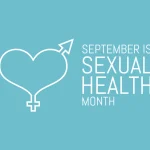Sexually Transmitted Infections Surge in Europe, New Study Shows
Reading Time: 2 minutes

 1050
1050
The European Centre for Disease Prevention and Control (ECDC) has commented on the state of sexually transmitted infections ( STIs) in the European Union in its latest Annual Epidemiological Reports. The findings shed light on the surge in the cases of STIs such as gonorrhoea, chlamydia and Syphilis indicating the need to heighten access to testing, increased awareness of the transmission of Sexually Transmitted Infections (STIs) and treatment to address this health challenge.
In 2022, there was a significant increase in the number of STI cases compared to 2021. Gonorrhea increased by 48%, Chlamydia cases increased by 16% and Syphilis cases increased by 34%. Cases of congenital Syphilis and lymphogranuloma venereum (LGV) have also increased. The STI trends underscore the need for immediate action to mitigate the effect of STIs on the public and also immediate action to prevent the transmission of STIs.
ECDC Director Andrea Ammon, expressed deep concern over the rising STI rates, saying, “Addressing the substantial increases in STI cases demands urgent attention and concerted efforts. Testing, treatment and prevention lie at the heart of any long-term strategy. We must prioritise sexual health education, expand access to testing and treatment services, and combat the stigma associated with STIs. Education and awareness initiatives are vital in empowering individuals to make informed choices about their sexual health. Promoting consistent condom use and fostering open dialogue about STIs can help reduce transmission rates.”

With the high rise of STI cases across Europe, people should take proactive steps to prevent spreading STIs. Testing for STIs is important for early detection and treatment, especially for those with new or multiple sex partners. Since these infections are asymptomatic and can be transmitted without knowledge, sexual partners need to get tested before having raw sex. If somebody suspects that they may have been infected with an STI they should seek immediate medical advice since timely treatment prevents transmission and potential complications that may arise out of the infection.
If sexually transmitted infections like Syphilis, gonorrhoea and Chlamydia are left untreated, they can lead to serious health complications like chronic pain and pelvic inflammatory disease. Chlamydia and gonorrhea can lead to infertility and Syphilis leads to cardiovascular and neurological issues. If Syphilis is left untreated among pregnant mothers, it can cause adverse effects on children.
ECDC insists on the significance of taking proactive measures to address the increased rates of STIs and also protect public health. The most effective way to prevent STIs is by practising safe sex and using condoms regularly and correctly during sexual activity. Fostering honest and open conversations about sexual health with your partner also goes a long way to reducing the transmission of STIs and promoting the overall well-being of individuals.
EXPLORE MORE: HIV Prevention Injection Rolls Out In Cape Town
 1050
1050







